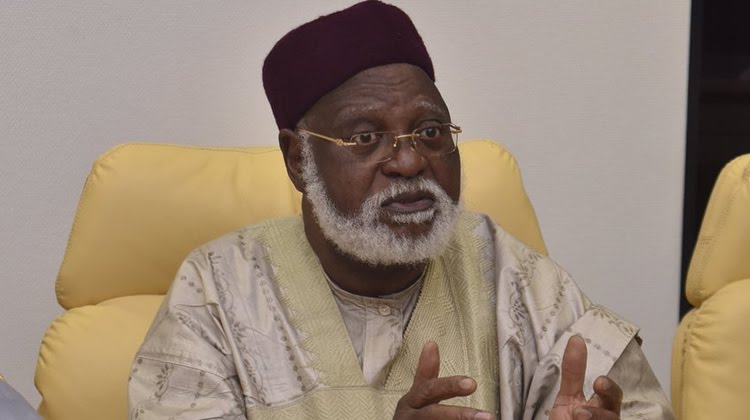
21 Jan Abdulsalami Abubakar says Removal of fuel subsidy will worsen Nigeria’s woes
Former Head of State, Abdulsalami Abubakar, has said the removal of subsidy now would throw Nigerians into more economic hardship.
Mr Abubakar spoke at the 19th Daily Trust Dialogue held in Abuja on Thursday with the theme “2023: The Politics, Economy, and Insecurity.”
The federal government in November 2021 disclosed its plan to remove fuel subsidy in the second half of 2022.
The former Nigerian leader, who was the chairman of the occasion, asked the government to bury the idea because the current insecurity in the country had been worsened by the harsh economic situation.
“Insecurity in the country is worsened by our dear economic situation. Unemployment and underemployment remain at a high level. Over 18 million Nigerians are still caught up in needless poverty. All of these tend to have negative effects on security. In fact, Nigeria now faces a full security crisis that is confounded by the COVID-19 global pandemic and the banditry in many states in Northern Nigeria.
“Most of these have disrupted the final value chain across the country and negatively impacted the ability of Nigeria to produce, process, and distribute.
“There is a continuous rise in the prices of food items beyond the reach of many Nigerians. On top of all these, fuel prices are expected to rise significantly in the coming months as announced last November. We all know that when this happens, it will push many millions of Nigerians into poverty,” he said.
Mr Abubakar lamented the nation’s security challenges, saying Nigeria is once again at crossroads.
”Ladies and gentlemen, Nigeria is once again at crossroads. Insecurity remains the single, most difficult challenge for the country. The Boko Haram insurgency in the North-east, banditry in the North-west, violence in the South-east, kidnappings and abductions of travellers across many states all continue to fester in the land.
“In addition to these, ethnic, communal and religious conflicts are rearing their head again in many parts of the country. All of these have greatly challenged and overstretched our security forces. This has caused thousands of deaths and millions of internally displaced persons in the country over the past years,” he said.
Borno State governor, Babagana Zulum, who was a guest speaker at the event, traced the genesis of Nigeria’s state to the abysmal attitude of governors to education and infrastructural deficits.
He said just as many would heap the blame on the government at the centre, the country’s security challenges are spillovers from other issues that its leaders, across party lines, are not addressing properly.
“The major problem we are having in Nigeria is corruption, whether we like it or not. Most of the fundings meant to provide services to the people are channeled to the melting purse of torturous bureaucratic ministerial and departmental system. Unless we change this attitude of accumulating huge amounts of wealth, something we can’t even eat or consume.
“The only way we can fight insecurity is by becoming resilient enough. If we are not resilient enough, you can’t provide security,” Mr Zulum said.


Sorry, the comment form is closed at this time.